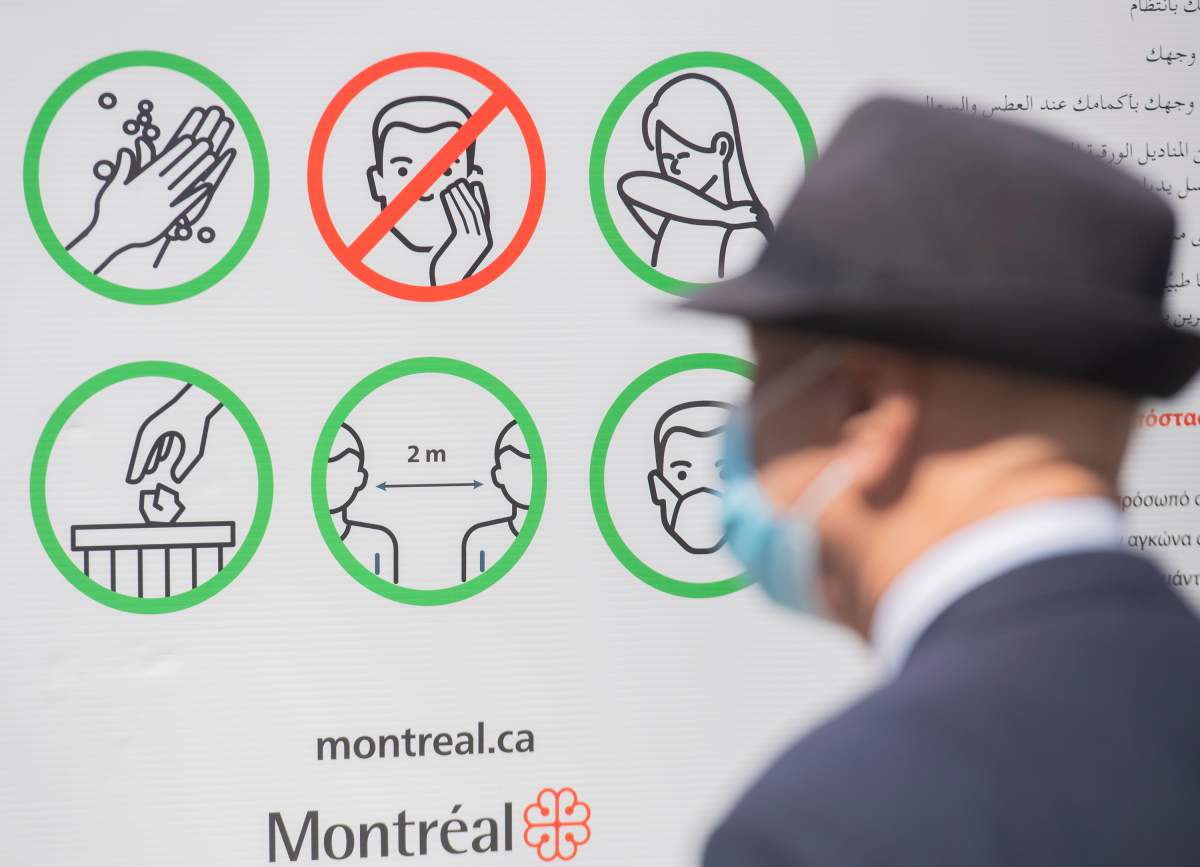Montreal could see pandemic-related hospitalizations stabilize and even drop in May if there is a strong adherence to restrictions and vaccination continues to ramp up, according to Quebec’s public health institute.

The COVID-19 projections released Thursday by the Institut de Santé Publique du Québec (INSPQ) come as the province faces a third wave of the health crisis.
The latest modeling is more optimistic for Montreal due to the expected the arrival of more vaccines in the coming weeks.
Yet, health experts are still urging caution in the city and other regions in Quebec, which have been harder hit by the most recent wave.
“The situation remains fragile,” said Marc Brisson of Université Laval during the presentation.
READ MORE: Montreal says city on track with vaccination strategy, cautions more work ahead
In Montreal, the latest measures aimed at clamping down on the third wave have helped slow the progression of coronavirus variants.
The situation could continue to improve if Montrealers still show up in droves to be vaccinated and if they strictly follow the rules in place, according to the institute.
But INSPQ warns that if that adherence wanes, the city could see a jump in new infections — similar to what occurred in March when the third wave gained steam.

Get weekly health news
“For these optimistic projections to happen, there has to be a higher level of (vaccination) coverage and a good adherence to the measures,” Brisson said.
When it comes to other regions, the institute also outlined that the emergency measures implemented in Quebec City and Gatineau helped stem the tide of COVID-19.

In early April, the government ordered non-essential businesses and schools to close in those regions as cases started to spike. The additional restrictions will gradually ease next week, nearly one month after they were enforced.
“The measures of orange zones and red zones wouldn’t have been enough to break the exponential rise of cases and hospitalizations,” Brisson said.
Lifting the emergency measures in those hard-hit areas could prompt another jump in cases and hospitalizations next month, according to INSPQ.
Emergency restrictions for Bas-St-Laurent
The latest projections come as Quebec recorded 1,042 new cases and 10 more deaths, including three in the past 24 hours.
Health Minister Christian Dube announced Thursday that the government is adding special emergency restrictions starting Friday night to the Bas-St-Laurent region, northeast of Quebec City, where he says COVID-19 transmission is increasing.
That region reported 58 new infections Thursday, nearly double the 28 cases reported on Sunday.
The vaccination rollout saw 72,303 more shots administered. So far, more than three million doses have been given in the province, though the majority have been the first shot.
READ MORE: Indian expats in Montreal join relief efforts for pandemic-battered country
Hospitalizations related to the pandemic dropped by 20 for a total of 623. This includes 165 people in intensive care units, a rise of four.
The latest screening information shows Quebec carried out 40,575 tests Tuesday.
The province has seen 348,732 infections over the course of the health crisis, though authorities say there have been 327,865 recoveries to date.
The pandemic has killed 10,913 Quebecers to date. Authorities say the tally was lowered after an investigation found five previously reported deaths were not related to the virus.
—With files from The Canadian Press





Comments
Want to discuss? Please read our Commenting Policy first.